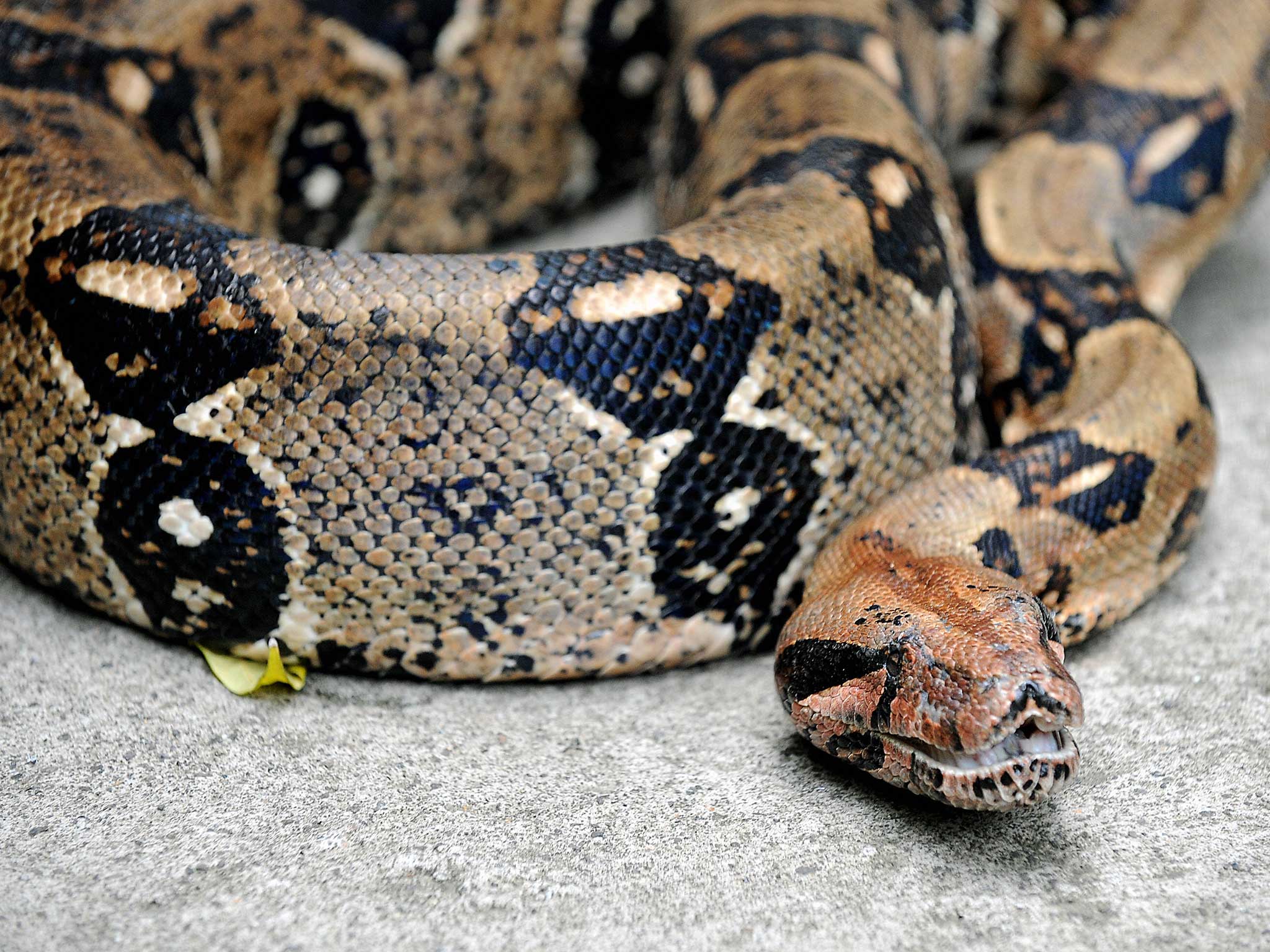Boa constrictors do not suffocate their prey but instead cut off the blood supply, scientists find
Researchers tested their theory on live rats, measuring the exact time of death

Scientists think they may have finally discovered how boa constrictors kill their prey – and it is not by suffocation.
Researchers at Dickinson College, Carlise, in Pennsylvania, believe that constrictors kill by cutting off the blood supply, squeezing their prey until the animals’ circulatory system essentially short circuits and fails.
Scott Boback, a vertebrate ecologist at the US College who led the research, suggests that cutting off the blood supply is a much more efficient – and safer – killing method.
"The heart literally doesn't have enough strength to push against the pressure," Mr Boback told National Geographic.
His team used live, anaesthetised rats to test the theory first suggested in 1994. By rigging the rats up with vascular catheters to measure blood pressure and electrodes within the rats’ chests to measure the heart’s electrical activity, Mr Boback’s team were able to establish the exact moment of death.
Previously, research has indicated that pythons use their strength to suffocate their prey to death – but the new study (published in The Company of Biologists) indicates that ischemia (a lack of blood supply to tissue) is a far more likely scenario.
Once the blood supply is disrupted, organs such as the heart, brain and liver shut down as they cannot maintain the needed high metabolic rate, quickly incapacitating prey.
Their research has been supported by other conservationists. Paul Rosolie, who has spent the last decade working with anacondas, said the findings made sense as in the wild pythons were relatively defenceless in comparison to their prey.
"If it doesn't get the attack exactly right, something big like a capybara can chew right through the body of an anaconda," Mr Rosolie said.
Subscribe to Independent Premium to bookmark this article
Want to bookmark your favourite articles and stories to read or reference later? Start your Independent Premium subscription today.

Join our commenting forum
Join thought-provoking conversations, follow other Independent readers and see their replies